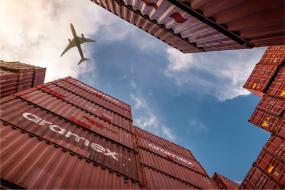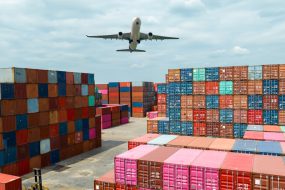In the high-flying world of aviation, every second counts – and so does every screw, seatbelt, snack, and spare part. Behind each smooth take-off is an intricate web of planning, timing, and teamwork known as airline supply chain management. But what happens when that planning falls short?
Spoiler alert: it’s not pretty.
From delayed flights and frustrated passengers to sky-high costs and long-term reputational damage, poor supply planning can quietly bleed an airline dry. And in today’s fast-paced travel landscape, where demand is climbing and margins are tight, there’s just no room for slip-ups.
Let’s explore what’s really at stake, and how aviation support global logistics is levelling up to keep things flying high.
Related Reading: The hidden edge: Logistics tech in engineering
It’s Not Just About Spare Parts
Supply chain management might sound like a back-office function, but in aviation, it’s centre stage.
Every detail, from aircraft maintenance schedules and fuel procurement to catering and baggage handling, needs to be flawlessly choreographed. A single snag in the system can cause ripple effects that ground flights and upset customers.
And with airline logistics companies operating across an intricate global network, a delay in one link can impact the whole chain.
What Does Bad Planning Actually Cost?
Short answer: a lot.
Immediate Financial Hits
1. Operational Chaos = More Cash Burn
Last-minute fixes are rarely cheap. Whether it’s rush-ordering parts or paying staff overtime to deal with delays, the costs stack up quickly.
2. Cancelled Flights, Cancelled Revenue
Each cancellation means lost ticket sales, rebooking headaches, and compensation claims. Multiply that by a few routes, and it’s a serious dent in the bottom line.
3. Angry Passengers Don’t Come Back
Late planes and poor comms chip away at customer trust. Offer them a soggy sandwich and a voucher, and they might still take their business elsewhere next time.
Long-Term Fallout
1. Brand Damage You Can’t Undo
Once an airline becomes known for poor reliability, it’s hard to shake that label. Even one viral TikTok of a missed connection can be a PR nightmare.
2. No Room to Grow
Airlines struggling with their supply chains often miss out on expansion opportunities, whether that’s opening new routes or scaling operations.
3. More Eyes Watching
Regulators don’t take kindly to consistent disruptions. Poor planning can lead to increased scrutiny, penalties, and mandatory process overhauls.
Related Reading: How top brands are fixing supply chain slowdowns
So, What’s the Fix?
Luckily, the future of aviation support and global logistics isn’t all doom and gloom. Many airlines are getting ahead of the game by embracing smarter tools, building better partnerships, and having a Plan B (and C).
Tech to the Rescue
1. Data That Predicts the Future
Using analytics, airlines can forecast parts demand, spot weak points, and avoid nasty surprises. Think of it as supply chain clairvoyance.
2. Blockchain = Zero Guesswork
This tech keeps every transaction locked, logged, and transparent. If a part’s late, you’ll know who, what, when – no finger-pointing needed.
3. IoT = Instant Alerts
With sensors tracking everything from cargo temperatures to component wear, airlines can take action before issues snowball.


It Takes a (Global) Village
1. Better Supplier Relationships
Strong supplier ties mean better service and fewer nasty surprises. Open comms = smoother operations.
2. Flexible Contracts, Flexible Ops
Things change fast. Contracts that let you pivot without big penalties? That’s supply chain gold.
3. Strategic Logistics Partnerships
Working closely with top-tier airline logistics companies gives you access to global networks, shared resources, and built-in expertise.
Always Have a Backup Plan
1. Risk Management 101
Know where things can go wrong and have a response ready. It’s not paranoia, it’s preparation.
2. Keep Improving
Even good systems can get better. Continuous improvement helps you stay agile in an ever-changing industry.
3. Redundancy Isn’t a Dirty Word
Having extra suppliers, extra stock, or alternative transport routes can be the difference between a small hiccup and a full-blown disaster.
Related Reading: How tech is revolutionizing logistics efficiency
Key Takeaway: A Smart Supply Chain Keeps Airlines Flying
In aviation, poor supply planning isn’t just an inconvenience – it’s a major business risk. But with the right approach to airline supply chain management, airlines can turn a potential pain point into a competitive edge.
By tapping into smart technologies, working with reliable airline logistics companies, and building a resilient, flexible network, airlines can avoid the hidden costs that come with chaos. Because in this game, staying grounded is not an option.
Looking to streamline your supply chain? We help airlines and aviation partners build efficient, scalable solutions for global success. Get in touch and let’s take off together.




